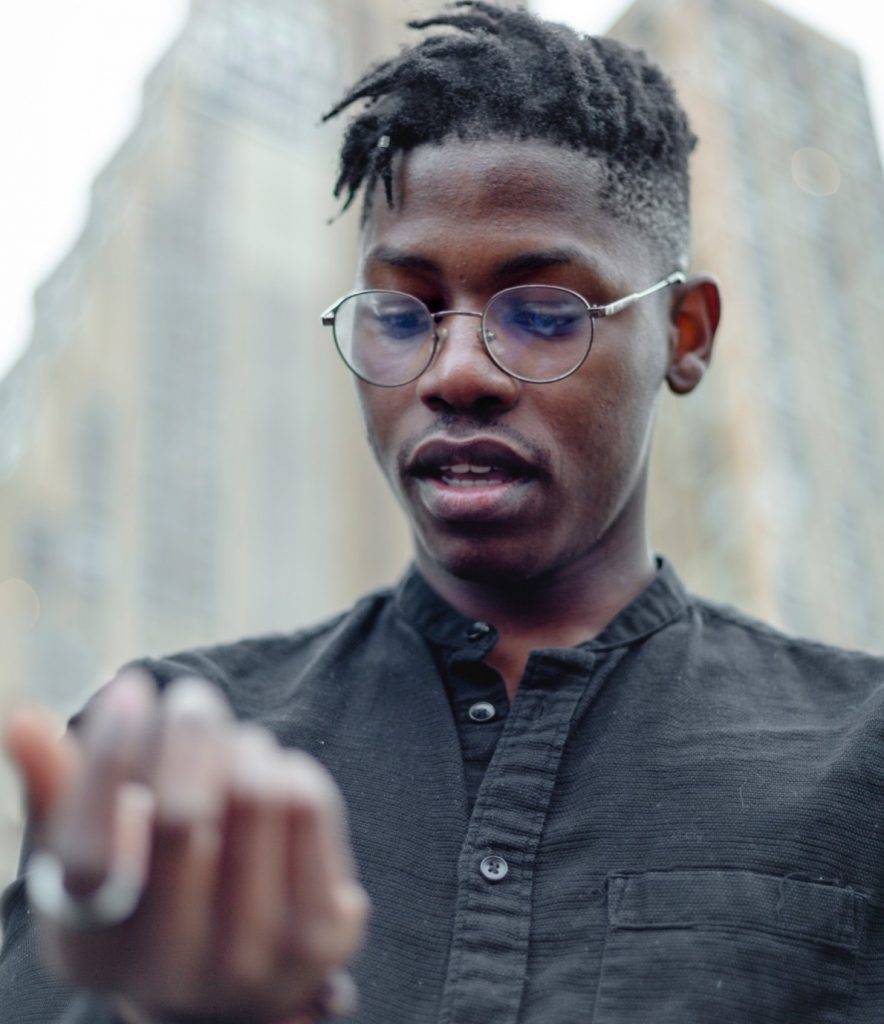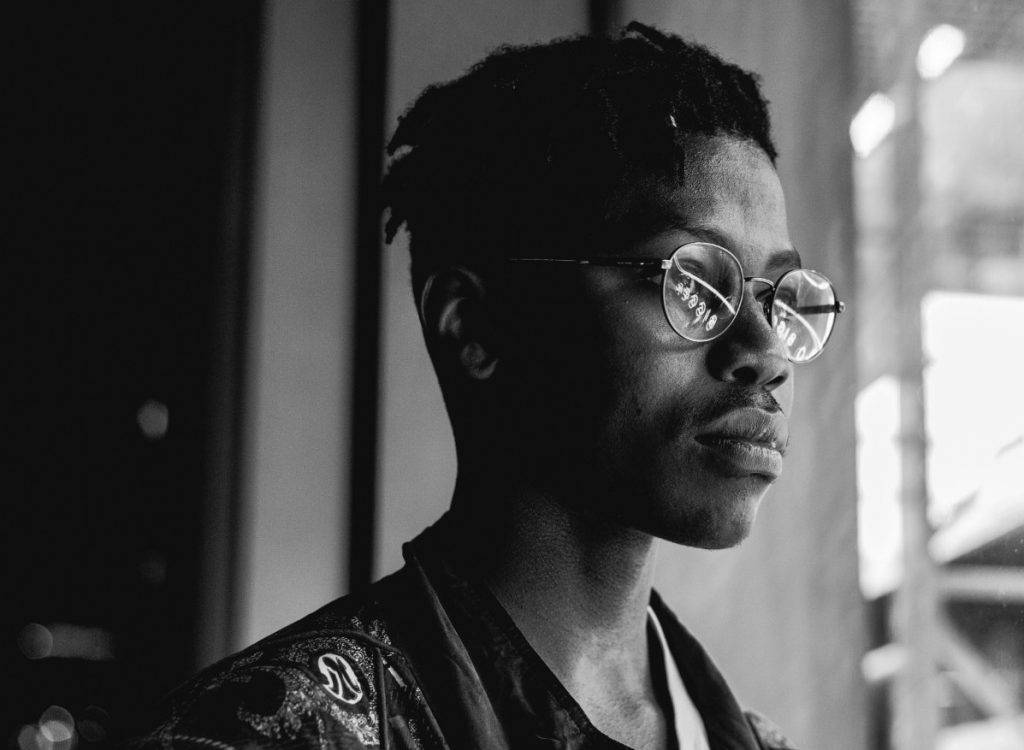How A Little-Known South African Grad Student Helped Make Beyoncé’s Lion King Album

Sometime in 2018, a little-known South African kid left home with a suitcase and a keyboard. He had only finished college a year earlier and had opted to chase not only his studies but also a dream.
A year later, the same kid was on a song with “the” Beyonce in the much-talked-about Lion King Album.
That kid is a 25-year-old South African whose name is Bubele Booi and this is how he managed to pull off something he himself thought of as half-surreal, half-unreal.
How It All Began
Born into a family of five, Booi grew up in Johannesburg, though Cape Town is where he first knew as home. He was born in May 1994 and as part of South Africa’s very first generation of “born frees” — those born after the abolition of the repressive apartheid regime — he wasn’t subjected to as much repression, but he’s well aware of the struggles.
Forming part of a new, free generation of blacks in South Africa, Booi was afforded more opportunities than he would have been able to get a mere sniff of had he been born years earlier.
Coming from a humble background, he had a modest upbringing. His mother was a social worker who juggled work with domestic duties and his father was a trained electrical engineer who not only worked as a consultant for telecommunications companies but also had an ear for music.

Booi’s earliest encounters with music had much to do with his father’s efforts at showing him some tricks with some musical instruments. In particular, he has fond memories of some basic piano sessions with his father in their home before things got more formal with actual piano lessons.
“In the beginning, I learned the very basics from him. And then, after that, it was taken over by a piano teacher,” he tells WeeTracker.
“My father plays a couple of instruments in a very basic way. So, I sort of copied him and learned from him. He would just play the piano and guitar and I picked up a lot of the basics from him.”
Booi was, thus, drawn to music from his childhood, though he wasn’t as much enchanted by the idea of becoming a performer as he was about “creating music.”
“I’m actually a very bad performer, I could never be a concert pianist or a performing musician. I just love to create melodies, I love music technology and production,” he says.
“This is something I have always wanted to do since childhood. I have always loved music and technology but I didn’t know how to make both intersect until I discovered music technology and production. And I’ve worked towards it ever since.”
And Things Began To Shape Up
When Booi first made it known to his folks that he wanted to pursue music, he wasn’t sure what to expect. But what he did get was a lot of support and the injunction that if he wanted to pursue music, he would have to do it the proper way — not the “let’s-go-with-the-flow-and-wait-for-the-big-break” way.
As supportive, educated folks themselves, they didn’t roll their eyes like many people did when Booi (who was among the best students in his class) decided he wanted to study music in college after high school. Their one request was that he went after it as he would a profession, not a hobby.
“I’m so grateful to my parents for supporting me and allowing me to pursue my dream especially when other people did not see the vision of what I was trying to achieve.
“Some people were shocked when I decided to study music at the tertiary level because I did so well in school and they were like: why don’t you study engineering? You have the grades, why are you going to learn to play guitars?”
He adds, “My parents have never been part of that crowd, they have always been supportive from the beginning. They have incredible attention to education, that is non-negotiable, there was never talk of dropping out of school. They are like: if you want to pursue music, you can go after it in every way, shape, or form, but you must do it in the academic sense.”
Pursuing A Career In Music
Booi eventually gained admission into the University of Cape Town in 2013 where he was to study his course of choice, music, with a specialization in music technology.
He tells WeeTracker that it was a great experience and he was particularly influenced by the Head of Department (HOD), Mr. Theo Herbst, who he describes as a visionary.
“Mr. Herbst is an incredible man. I owe so much to him because he was the guy who gave me my first set of studio keys. I worked late a lot and he sort of got tired of waiting to lock up after me. So he trusted me with my own set of studio keys and that was one of my happiest days at the university.”
According to him, studying at the institution benefitted him greatly because of the holistic approach to music.
As he says: “There I got to do very classical training, look at music theories and analysis of great classical composers, learn how to orchestrate for full orchestras and ensembles, learn how to arrange jazz for bands, then I got to do African and indigenous instruments, and do all sorts of things. I got a really wide understanding of the elements and fundamentals of music.”
Booi, who grew up enjoying the works of personal favourites in jazz guitarist, Jimmy Dludlu, and contemporary producer, Max Martin, and even Westlife, completed the four-year academic programme in music in 2017.
And with a freshly-minted degree, he sought to go even further by chasing a master’s degree at New York University (NYU). That move was to see him really get his career started from the biggest stage yet.
How Booi Got Himself On The Lion King Album
The first time Booi traveled abroad was sometime during his gap year in 2013 when he spent 3 months in New York volunteering for an organisation.
The second time he left South Africa for The Big Apple was in 2018 when he set off for his master’s programme. And if all goes according to plan, that programme will be wrapped up in a few weeks.
So, how was this grad student able to write and produce a song on Beyonce’s Lion King Album? Well, it all happened like a dream.
As Booi told us, after moving to New York, he got connected to someone at Universal in New York. And this contact was friends with someone who was part of Beyonce’s team.

Through that contact, Booi shot his shot, so to speak. And when they heard his music, they sent him over to Parkwood Entertainment, which is essentially Beyonce’s label. Booi recalls being incredibly intimidated when he first walked into a meeting they had set up.
“They turned out to be cool, lovely people. But I was incredibly intimidated at first,” he said.
After the first meeting, the trail suddenly went cold. Booi didn’t hear from them for months.
“I just assumed that nothing happened after all and eventually I got an email saying we like your stuff,” he recalls.
Then, the trail seemed to go cold again when he didn’t hear from them for a few more months. But eventually, a call came through and this time, they said: “hey, our boss likes your music and likes this one song and wants it on the album.”
As Booi recalls it, “I was like: who is your boss? They said Beyonce. It was just astounding.”
After a few months, he was invited to a writing camp in Los Angeles and it happened that he was around L.A at that same time. Everything seemed to be falling in place, the universe was doing the “thing.”
“I was doing some work out there and I got a call saying: where are you? And I was like, I’m in L.A. And she was like, perfect!”
Two days after that call, Booi was at the Lion King writing camp. He describes it as an incredible experience, even though Beyonce’s busy schedule made it hard for one to actually meet her.
“To be in the same room with those people among whom were world-class producers, writers, and artists who have sold millions of records, it was just incredible,” he remarks.
“The first day was incredibly intimidating because you don’t know what to expect, you don’t know who would be there. It’s easy to doubt oneself in such a scenario and wonder if you’re good enough.”
He adds, “But once you get there, you realise that people are just people and you just have to have a lot of trust in your abilities and if you make something exciting, then you’ll know.
“What I loved is that no one in that camp questioned why you were there, I didn’t feel the need to prove myself even as I was, by far, the most unqualified person there. But no one doubted me, everyone was just open to collaborating.
“I think it shows the heart of music, that it’s not about your status or how high up you are. If you can create something fun and exciting, that’s all that matters and everyone in that camp was fun to work with.”
But it hasn’t been entirely rosy. Just last summer of 2019, Booi was on the verge of packing it in and heading back to SA due to the pressures of the profession.
“As creators, we spend our lives making things look effortless, but in reality, it’s very hard,” he says.
“I can’t count the number of times my work was rejected, can’t count the number of times I’ve failed and almost given up. But my family and production partner, David, have been very supportive.”
For context, Booi had been mainly working on a number of projects with some exciting upcoming artists when he arrived in New York in August 2018. The first meeting with Parkwood had happened four months later.
By May 2019, he was doing a song with Beyonce titled: “Find Your Way Back”. Now, that’s some leap! And it’s just for starters as he says he’s only just begun.